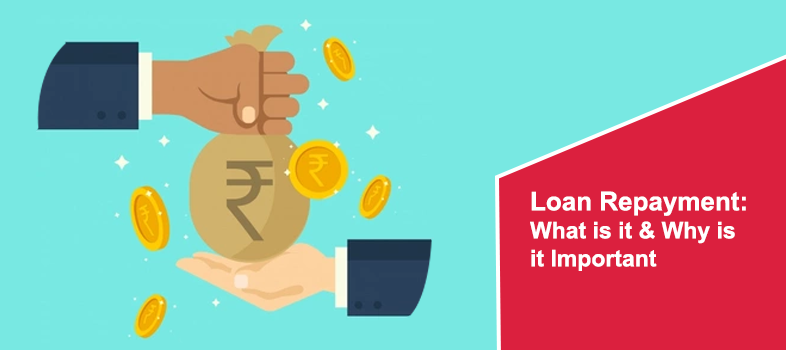Taking out a loan becomes a necessity for people who need financial assistance & the terms of the loan come with it. Applying for a loan is simple but repaying a debt that has accrued interest is difficult. There are borrowers who handle their debts well and pay them back on time, but there are also defaulters who fail to pay back their loans.
When you have taken a loan and the EMI date approaches, you should not overlook loan repayments as a vital step. One should obtain loans only if repayment is doable; otherwise, the people who default on the payments damage their own credit history and financial background, which might make future loans more difficult to obtain.
What is Loan Repayment?
Loan repayment is the process of repaying a lender for money borrowed over a certain period of time, which includes both the principle amount and the interest payments made in equal monthly instalments (EMIs).
Loan repayment is a critical component of maintaining a high credit score. Early loan repayment may result in penalty costs depending on the terms and circumstances of the lender. A portion of your outstanding debt may be used to calculate the penalty. As a result, early loan repayment is critical for avoiding further penalties or fees.
How Does Loan Repayment Work?
Loan repayment is usually done in equal monthly payments (EMIs). The amount of money repaid to the lender on a monthly basis is referred to as instalments. It consists of two parts: the principle amount and interest on the principal amount, both of which are paid to the bank or lender on a monthly basis until the whole amount due is paid off throughout the loan term.
You could think that the principal and interest components of an EMI are split evenly. That is not the case, though. The interest component of an EMI is greater during the first loan period. The interest component of the loan decreases as the loan term progresses, but the principle component increases.
How Can You Repay Your Loans?
You can return your loan in a variety of ways, depending on what is most convenient for you. Let’s have a look at a few different loan repayment options:
- Debt consolidation is a great way to pay off several obligations with a single loan.
- Using Investments: Depending on your financial situation, you may be able to repay a loan using investments. To repay the debt, you might use your life insurance policy or your provident fund.
- Convert Credit Card Debt to EMIs: After a period of excessive spending, your credit card bills will demand payback. You can request your credit card provider to convert your outstanding balances into EMIs.
- Automating Loan Repayment: Lack of cash isn’t the sole reason for personal loan default. Some borrowers are so preoccupied that they fail to meet their loan payback deadlines. As a result, automatic loan repayment is excellent for busy bees like these. On a certain day, the EMI will be deducted immediately, making sure you never miss on the deadlines.
What is the Importance of Loan Repayment?
Loan repayment is important since it not only reduces your loan debt and accrued interest, but it also affects your credit history. The immediate financial consequences might range from a higher interest component (due to missing instalment payments) to bankruptcy filing (in the event of failing to repay altogether). There’s also a long-term impact on your credit health, which shows up on your credit report. This is why you should always keep a check on your loan repayment to be cleared on time to prevent default charges and penalties.

